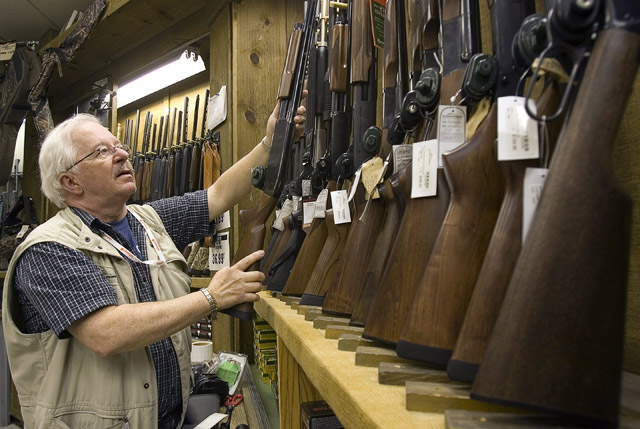Want to buy a gun?

You have a number of hoops to jump through, including a safety course and an application form asking about your contact with the criminal justice system, threats of suicide or suicide attempts, violence, mental health, addiction, reports about you to social services, divorce, job loss or bankruptcy.
The form also asks for character references and contact information for current intimate partners and former ones, if the relationship ended fewer than two years ago. If letting you own a firearm is a dangerous mistake, the reasoning goes, these people are in as good a position as any to know about it and warn police before the licence is issued.
But the RCMP doesn’t know how many of those people are actually called – apart from people applying for a new “restricted” or “prohibited” gun licence, they don’t track it. And gun safety instructors say they often aren’t.
“Personal references are contacted on a case-by-case basis, with priority normally given to first-time applications for licences with restricted privileges,” RCMP Sgt. Greg Cox said in an email.
At the end of 2013, about 1.9 million Canadians had some form of valid firearms license. Between 2001 and 2013, the RCMP’s Canadian Firearms Program approved an average of about 373,000 new gun licence applications or renewals a year.
Between 2008 and 2012 the RCMP refused an average of about 550 applications a year. The most common reason? They were seen as a potential risks to themselves or others.
READ MORE: Our gun control coverage
Ken Morrison, a manager at High Caliber Services in Mission, B.C., runs a firearms safety course. He says former students coming to the store often say no one called their references.
“It was shocking to me that I would have students that came back after they got their licences and they would mention that their references were never checked. I was always under the impression that they were checked – why else would you bother to provide a reference?”
Not only are many references never called – the RCMP couldn’t tell us how many have been.
“The total number of references contacted by the CFP in a given period of time is a function of the number of firearms licence applications, CFP call centre capacity, and the risk assessments of individual applications,” Cox wrote.
Public Safety Minister Steven Blaney’s office gave a similar response.
“The RCMP contacts personal references for firearms license applications on a case-by-case basis,” spokesperson Jason Tamming wrote in an e-mail.
Police do keep track of reference checks for new restricted licences (not renewals), however: In 2013, the RCMP called 188,494 references for new handgun licence applicants, down from 212,945 the previous year, documents obtained by Global News under access-to-information laws show.
An application for a non-restricted licence, which covers mainstream rifles and shotguns, costs $60. A restricted application costs $80.
The issue has been raised before: In 2003, then-Canadian Alliance MP Garry Breitkreuz criticized then-Liberal Solicitor General Wayne Easter for not ensuring all references were called.Breitkreuz raised the matter at Question Period, saying that the Liberal government of the day was “straining at a flea and swallowing a camel”. The issue was a talking point for the federal Conservatives, then in opposition, the following year (see #13, here).
Breitkreuz is now a Conservative backbencher. In an interview he said while he thinks some of the questions on the form are too intrusive, references should be checked for all new licence applications, both restricted and non-restricted, but not necessarily licence renewals.
“If it’s a new licence that’s being issued, I think they should do some background checks.”






Comments